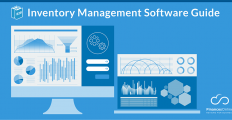Small businesses serve as the backbone of an economy. Often, it is observed that the limited resources, overwhelming quantity of data, and time constraints highly impact the growth of such businesses. But how about a practical solution that can streamline operations and push the industry forward?
Consider the cloud-based software. This technology offers unprecedented flexibility, scalability, and higher efficiency in business operations. In this article, we will delve into the power of cloud-based software for growing and monitoring your small business.

Understanding the cloud-based software
To have a greater understanding, we have to start by understanding the cloud-based software first.
What is cloud-based software?
Cloud-based software, alternatively known as Software as a Service (SaaS), particularly includes applications that can be accessed via the internet rather than installed locally. Days are gone when businesses were compelled to purchase software on their hardware, instead subscribing to a cloud service provider that will host the software and manage it.
What benefits can be availed of using cloud-based software for a small business?
Cloud-based software can be very beneficial for a small business in a numerous way. Here are some of the benefits of using cloud-based software:
- Economical nature: There is no need to purchase expensive software and hardware licenses. Instead, pay a monthly or annual subscription fee to the service provider and it will cover the maintenance and technical support of the software as well.
- Scalability: The business resources need to be adjusted with the increase and decrease in demand. The cloud-based software gives you the liberty to scale without any extra charges.
- Accessibility: Just an internet connection will let you access the data and application.
- Data Security: Avail the security feature that will protect your database from all the possible malware or cyber-attacks. Although ensuring data privacy in SaaS in itself is a very complex issue.
What are the different types of cloud-based software?
To cater to your business needs, there is a wide range of cloud-based software available out there to choose from. Here are some types of cloud-based software:
- Customer Relationship Management (CRM): The central hub for your data and customer interaction. CRM arranges these by managing customer information and streamlining sales processes. It automates follow-up emails and invoice generation.
- Project Management: The progress of tasks and projects is a continuously changing figure. It becomes overwhelming to keep track of it. Cloud-based software helps with project scope planning, assigning roles, monitoring progress, and identifying potential roadblocks. All these statistics can be obtained by generating reports using the CRM.
- Accounting: This particular type of cloud-based software handles one of the most crucial portions of the business, i.e., finance. It streamlines financial operations through automated data entry. Also, the cloud-based invoicing software simplifies the invoicing process by offering customizable invoice templates for roofing, contracting, lawn care or client-specific, service contract invoices, and sales order invoices, ultimately saving time and effort.
You can get a projection of the financial health of the business and make informed decisions. To understand the payment gateway services before going further, you can know about them in detail:
- Automated Marketing: The marketing of a business requires a lot of your time and effort, especially if it’s small in magnitude. There are certain types of marketing automation cloud-based tools that can manage social media marketing, nurture leads, and simplify marketing workflows. It can curate professional emails, schedule posts, analyze social media performance, and also automate repetitive tasks to free up your time. Anyone can understand the entire process of lead generation and conversion by going through authentic sources.
The above-discussed types are just a few examples; there are countless cloud-based software solutions present. Some do human resource management; others handle business intelligence. The most suitable way to identify the tool for you is by understanding your business goal.
Monitoring Your Small Business with Cloud Software
Just as it’s crucial to keep your business moving forward, it’s equally important to track the performance of past business decisions. Here are some of the monitoring aspects that cloud software handles.
- Performance Metrics: It helps you track the Key Performance Indicators (KPIs) that are aligned with your business goals. These metrics can be Customer Acquisition Cost (CAC), Sales revenue, customer retention rate, website traffic, etc. You can dive deeper into the methods of uncovering early trends, data, and areas of improvement in the business. Set measurable and clear goals and keep tracking the progress to make data-driven, informed decisions.
- Real-Time Data: Today’s businesses are moving rapidly, and in such scenarios, having real-time insights is invaluable. Cloud systems can collect and analyze real-time data, disabling any losses from manual error by setting alerts. It arranges an interactive dashboard for swift decision-making. The potential issues can be figured out at a glance. All these insights will result in better customer service and optimized marketing campaigns.
- Security and Compliance: The protection of your sensitive business data is paramount. The cloud software itself has a very huge network of security measures, even though it is highly advised not to compromise with your security practices. Employee training, strong password changes, and security assessments should be conducted regularly. Your firm is advised to comply with industry regulations on standard security. Cloud solution software can help you comply by offering data encryption, audit trails, and access control. A comprehensive disaster recovery plan and business continuity backup plan are crucial for your business to prevent unforeseen circumstances.
Case Study
Challenge: Green Thumb Gardening Supply, a family-owned venture, has seen a sudden spike in visitors to its website. Integrating and showcasing gardening methods using advanced technology has gained the attention of many. That resulted in server crashes and longer downtime, which was observed regularly. They also lost a lot of sales opportunity calls and faced difficulty while analyzing customer preferences.
Solution: Green Thumb implemented a cloud-based CRM and inventory management model. CRM helps them track customer data, purchase history, and preferences. The inventory management system keeps providing real-time updates on stock availability, resulting in optimized ordering.
Key Takeaways:
- Cloud-based software is a game-changer for small ventures in the long run.
- Integration of CRM or other inventory management systems can take care of operations.
- Promotes data-driven decisions, which is an essential parameter of success.
Conclusion
Today’s business market is very competitive, especially for small businesses to stand out. With the proper utilization of the potential of CRM, project management, marketing, and accounting automatic tools, small businesses can channel their operations, boost customer relationships, and make informed decisions.
Effective monitoring with cloud analytics can help you identify trends and seize opportunities. By following the instructions outlined in this guide, your small business will register for the growth journey. I hope this guide article has helped you to have a better understanding of growing and monitoring small businesses using cloud-based software.























Leave a comment!